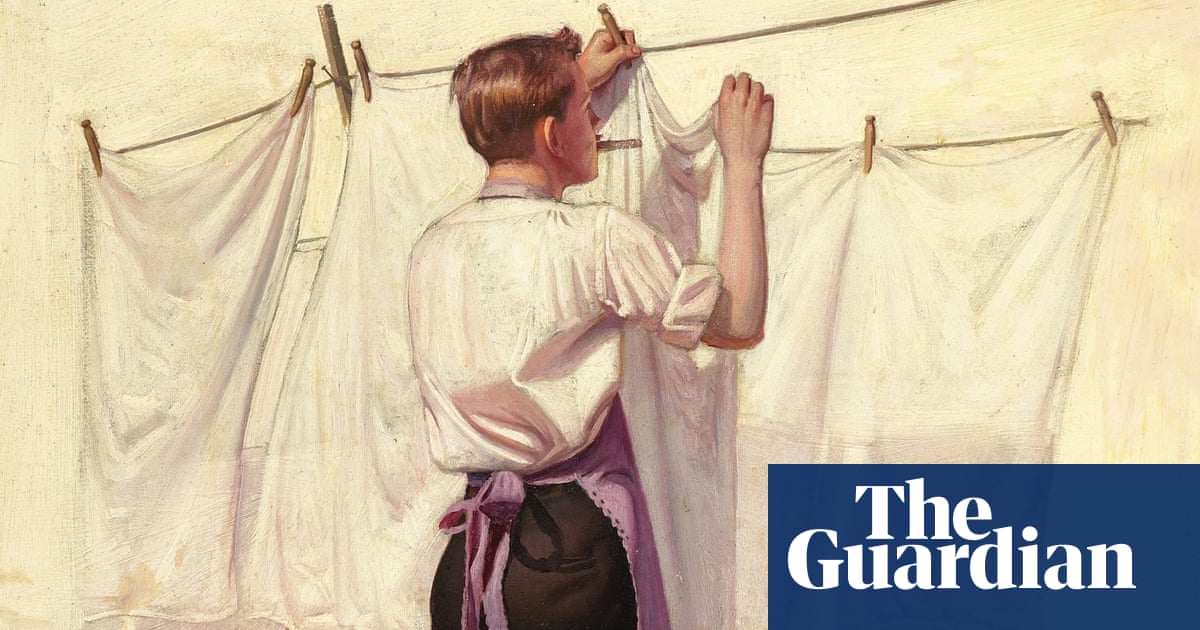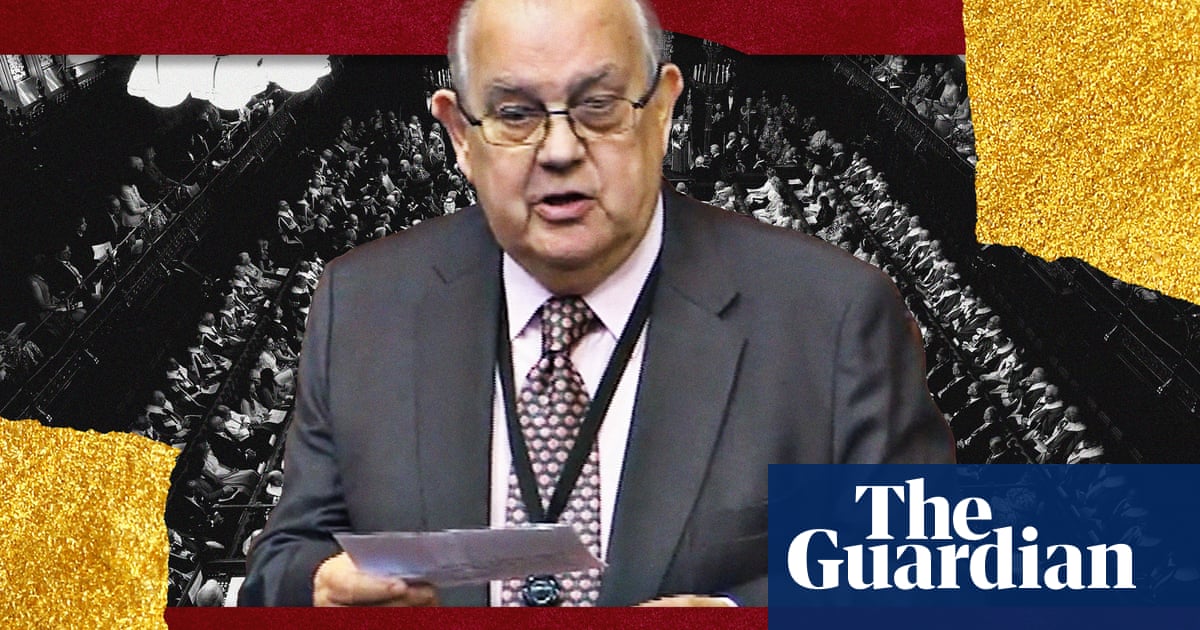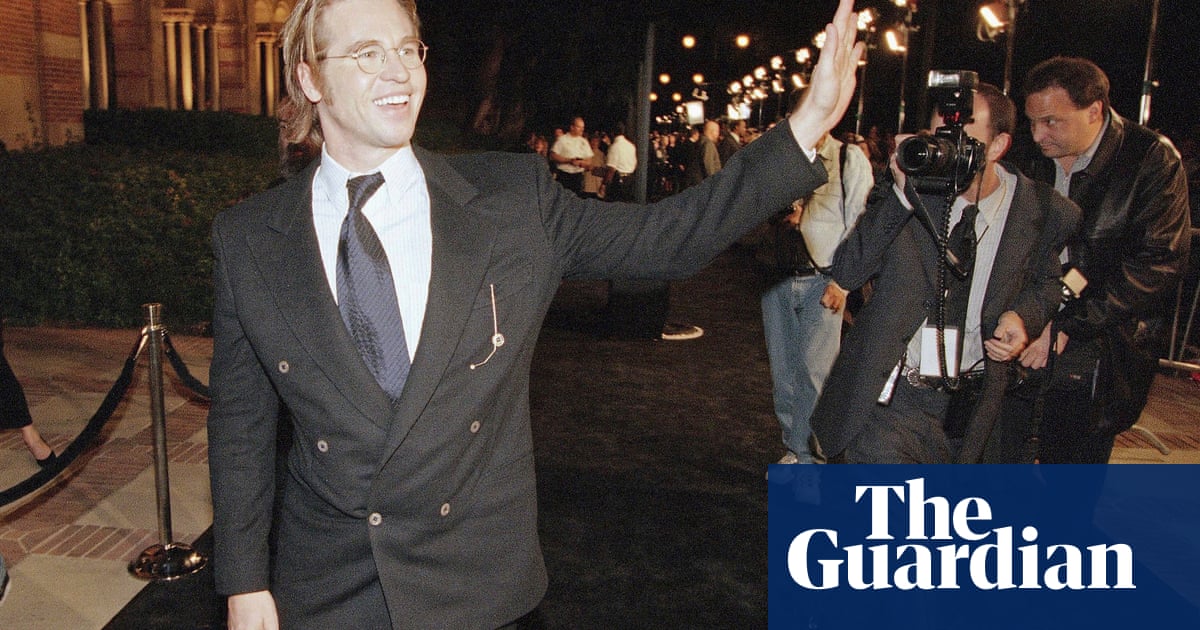POLITICS
Benjamin Netanyahu
Israel’s longest-serving prime minister ends the year under an arrest warrant from the International Criminal Court over alleged war crimes and crimes against humanity in Gaza, and taking the stand in a long-delayed corruption trial at home.
Yet Benjamin Netanyahu is also in a stronger political position than most of his critics expected
The 7 October attack on Israel by Hamas happened on his watch, but he has defied calls for a state commission of inquiry to investigate security failures that left the country so vulnerable. Unlike military commanders and intelligence officers in charge on that day, he has not apologised.
Netanyahu started 2024 facing domestic demonstrations demanding a ceasefire and hostage deal. Israel was at war in Gaza, under attack from Hezbollah in Lebanon and threatened by Iran and its allies from Yemen to Iraq.
He insisted that only “total victory” over Hamas would make the country secure. He shrugged off accusations that he was more concerned about his political future than the lives of Israeli hostages, as head of a coalition government with right-wing partners who threatened to leave if he agreed a ceasefire.

He ends the year claiming triumph over Iran and its self-proclaimed axis of resistance across the region. Hezbollah’s leadership and arsenal are in ruins, Assad has fled Syria, Hamas leaders have been killed by Israel.
Still, the image of Israel’s prime minister being grilled in court about corruption while leading a multi-front conflict with troops on the ground in Gaza, Lebanon and Syria is a jarring one. Nearly half the country thinks Netanyahu cannot effectively function as a wartime leader while giving testimony, recent polling found.
He has responded, as he habitually does, by going on the attack with a media campaign effectively painting himself as a martyr to unpatriotic enemies. His ruthless political instincts have focused, critics say, on his own survival. This year they appear to have served him well in the short term, though the long-term cost to Netanyahu and his country is still unclear. Emma Graham-Harrison
Rachel Reeves
If there is one UK politician who has shot from relative obscurity to household name in 2024, it is Rachel Reeves.
Ever since she became an MP in 2010, Reeves had yearned to be the first woman chancellor of the exchequer. She would joke to friends about mentioning her work as a Bank of England economist at least once in every speech to make sure people knew she had the pedigree.
It is a post that has existed some 800 years without a woman having been put in charge of the nation’s finances.
On 5 June 2024, the 45-year-old entered the Treasury to rapturous applause, having made history. It was a great day for women in politics, she told her civil servants.
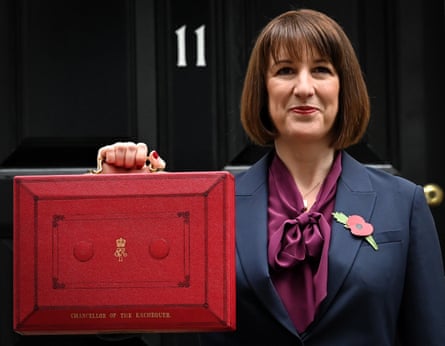
She was not always Keir Starmer’s first choice to run economic policy – he gave the shadow chancellorship to Anneliese Dodds. But less than a year later Reeves replaced her and began plotting her path from opposition into Threadneedle Street.
Liz Truss’s disastrous mini-budget in September 2022 was Reeves’s key moment. Reeves saw that she and Labour had the keys to Downing Street if they could convince voters they would be the exact opposite to the Tories. Labour would pledge to keep a tight grip on spending and not put up taxes on working people. She would also promise the highest growth in the G7 by investing in a green revolution.
Now, after the general election, Reeves is confronting the realities of high office. Being chancellor with an economy dragging along the bottom is no breeze. Everyone has demands on you and blames you for what goes wrong. In her first budget, Reeves decided to plug a £22bn black hole in the public finances by raising employers’ national insurance contributions. She also cut back winter fuel payments to only the poorest pensioners and retained the two-child cap on benefits. She had become Labour’s new ‘ironchancellor’. By late this year there were signs of economic growth slowing, not growing, and that job vacancies were declining.
2024 gave us our first woman chancellor. But Reeves knows the next two or three years will present a still bigger test. Toby Helm
Kemi Badenoch
Anyone who navigates Westminster’s pitfalls to seize the leadership of their party has had a year to remember. But in Kemi Badenoch’s case, she was one of very few Conservative politicians to have taken anything positive from a year that has proved to be the most bruising in the party’s long history.
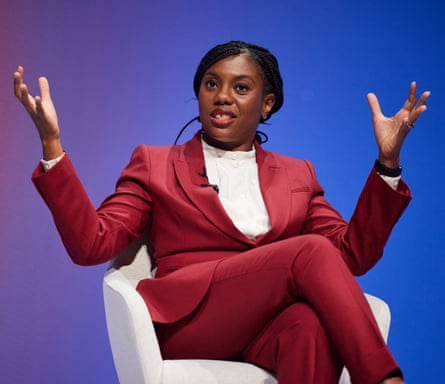
After a disastrous early election campaign that saw Rishi Sunak’s premiership end in crushing defeat, Badneoch was immediately a frontrunner in the race to lead a rebuild in opposition. Having forged an image as an anti-woke, no-nonsense culture warrior since entering parliament in 2017, she had built up a fan base in the party after an ultimately unsuccessful leadership bid to replace Boris Johnson in 2022.
After Sunak’s demise, Badenoch found herself playing a different role. Rather than being the insurgent candidate, she was seen as the figure capable of appealing to the right while also being tolerated by the party’s mainstream.
There is no question that appointing her as leader is a gamble at a critical moment for the Tories. Her often deliberately abrasive style will ensure she gains attention – often the hardest trick to pull off for opposition leaders. But her attacks on actor David Tennant or her claim that some civil servants should be in prison cause more problems than they solve. Poor approval ratings for both her and her party mean Badenoch needs a productive 2025 to begin the recovery. Michael Savage
Emmanuel Macron

It was a year of highs and lows for the French president. Doomsayers and drenching rain at the opening ceremony failed to dampen the success of the Paris Olympics and Paralympics, hailed as a triumph by even cynical Parisians. The reopening of Notre Dame Cathedral in five years, as Macron promised on the night of the devastating fire in April 2019, was a triumph of presidential will, collective spirit and an army of French artisans. The lows, however, were of Macron’s making. After he called an ill-advised snap election, his centrist government lost its majority and had to resign and there is ongoing political paralysis. Kim Willsher
Nigel Farage
It’s a face more often seen at Mar-a-Lago than Clacton-on-Sea, but Nigel Farage had something else to gurn about in 2024 when he was elected to represent Britain’s most Brexity seaside town in parliament, his eighth attempt to become an MP. During that election campaign I spent a dispiriting day in Jaywick, the wild-west end of that constituency, asking residents exactly what they saw in the pin-striped populist, to be repeatedly told versions of that lie: he’s the only one on our side.

A dozen years ago I had followed Farage on his neverending tour of town hall meetings, whipping up Ukip anger about wind farms and Brussels bureaucracy. At the time, not long after the election of David Cameron’s coalition government, the politician seemed messianic about the prospects of his one-man party. He sensed and nurtured the hardening of British attitudes on the centre right in those gatherings; the feeling, shaped by austerity, in home counties village halls and left-behind towns, that “Westminster” had nothing to say to them. He predicted to me then: “I would think in the next four to five years we will … succeed in realigning a segment of the British political scene.”
He has, fatefully, succeeded. The referendum, his pound-shop “independence day”, tore the country in half and in the fallout, as he predicted, the great electoral force of the Tory party has crashed and burned, with Farage emerging from the wreckage. Successive Conservative prime ministers post-2016 attempted to cosplay versions of his populism. Only a few months into the Labour landslide government, voices are already muttering, in the way that they have now muttered for a dozen years, that their primary task is finding ways to counter Farage’s stubborn hold on a large part of the nation’s political imagination. That task will not be made easier by Farage’s pending alliance with the Trump government and Elon Musk. Loathe him or loathe him, his is the face that refuses to go away. Tim Adams
HEROES
Gisèle Pelicot
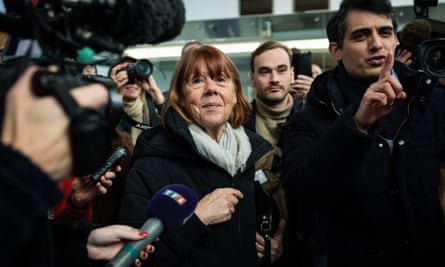
Pelicot, 73, became an international icon and feminism gained a new slogan after she bravely waived her anonymity in a grim trial that saw her ex-husband, Dominique, found guilty of drugging her and inviting more than 50 strangers into the marital home to rape her over a 10-year period. Gisèle Pelicot insisted the press and public be allowed in the courtroom to witness the videos he made of the appalling abuse so “shame changes sides”. Watching the men scuttle in and out of the courthouse hiding their faces as she strode in, head held high, meant it did. Kim Willsher
Alan Bates
It was tempting in January, when Mr Bates vs the Post Office aired on ITV, to think that, finally, justice would be done. But as the year draws to an end, the Justice for Subpostmasters Alliance is contemplating a fresh round of legal action after being told that many post office operators might still not receive compensation by the summer of 2025.
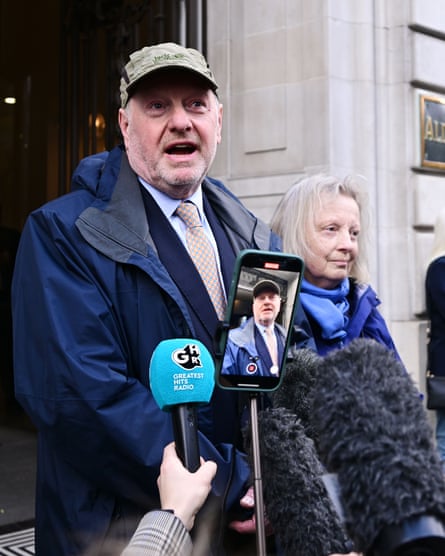
The TV drama had a huge impact, and probably played a part in the promotion of Alan Bates from mister to sir when he was knighted in June for forging the campaign from hundreds of subpostmasters who were wrongfully accused of theft, fraud and false accounting, because faults in the Post Office’s Horizon IT system made it seem as though money was missing from branch accounts.
Most viewers will still have a mental picture of Sir Alan as Toby Jones, the actor who portrayed him, but his face will haunt executives at the Post Office and Fujitsu, which made the Horizon IT system, and the government ministers whose actions have been examined at the inquiry.
The inquiry heard the closing arguments in the week before Christmas, after hearing from more than 5,000 witnesses as it unpicked the miscarriages of justice that saw more than 900 people wrongfully convicted between 1999 and 2015.
But nearly three years of inquiry hearings were less effective than four hours of TV in demonstrating the horror experienced by the workers as computers invented inexplicable figures, which investigators and courts then asked them to explain.
Politicians promised action, but although £363m has been paid to about 2,900 claimants, the government says it probably won’t complete compensation before Bates’s deadline of March 2025.
Meanwhile the inquiry report may appear next year, or possibly in 2026. By then there may have been some prosecutions – police say they have found dozens of persons of interest.
But do not bank on an ITV sequel. The channel said it actually lost money from the show, because few international broadcasters decided to buy it. The Post Office is not the right kind of fading British institution to appeal to foreign audiences. James Tapper
Rosamund Adoo Kissi-Debrah
In a year of alarming outcomes for the environment that saw average global air temperatures peak again, 2024 has also played out as a landmark moment for veteran clean air campaigner Rosamund Adoo Kissi-Debrah, who secured a historic apology from the UK government in October for the death of her daughter, Ella, from air pollution in 2013.

Kissi-Debrah had lived with her three children, including Ella, just 25 metres from London’s South Circular Road in Lewisham when Ella, then aged nine, suffered a fatal asthma attack as a result of excessive exposure to traffic emissions.
After seven years of litigation, Kissi-Debrah secured a coroner’s verdict to have the cause of death on Ella’s death certificate changed from asthma to air pollution. The inquest found that levels of nitrogen dioxide near Ella’s home had exceeded both World Health Organization and European Union guidelines, and the verdict made Ella the first person in the world to be legally recognised as having been killed by toxic air.
Kissi-Debrah has since gone on to campaign for a new clean air bill, widely dubbed as “Ella’s law”, stating that “the number of children who still die from asthma has not changed since Ella’s death.” Air pollution is estimated to kill up to 36,000 people in the UK and 7 million globally each year.
October’s apology from the Department for Environment, Food and Rural Affairs, which came as part of an out of court settlement of claims made by Ella’s estate, commended the impact of Kissi-Debrah’s “tireless work” to raise awareness around public health, saying that “young children like Ella should not have to suffer because of our air”.
“I believe every child has a right to breathe clean air,” Kissi-Debrah stated, “no matter where they live, their ethnic background or their economic status.” Ashish Ghadiali
after newsletter promotion
Elon Musk
This is Elon Musk’s year. But it may also be his century. A year ago, he was the world’s richest man who owned, among other things, a global communications platform and a fleet of rockets. He’s now $200bn richer and attached to the hip of the man with the keys to the world’s greatest superpower.

Musk is not thinking in four-year election cycles. His eyes are on the future. And he’s now in an unprecedented position to control it, appointed to oversee Trump’s “Department of Government Efficiency” and poised to mop up from government contracts and the dismantling of any federal legislation that might stand in his way.
It was after the failed attempt on Trump’s life in July that Musk went all in on him. In classic Silicon Valley style, he went for a high-risk but high-reward strategy, donating $277m directly to Trump’s campaign, though this is a drop in the ocean compared to the impact that his platform made. Musk rebuilt Twitter as X, a force multiplier of Maga talking heads and talking points and he’s made it clear that he intends to roll this out globally.
This is power of a kind the world has never seen before. It’s state + corporate + media power. Musk didn’t buy Twitter to make money in the short term. That was why it was so baffling to many media pundits. But as a long-term plan it made perfect sense: a means of exerting influence to make money – and accrue more power – in the long run. And as 2024 has proved, it worked. Carole Cadwalladr
Moo Deng

Perhaps it’s a sign of rising food prices that whenever a baby animal went viral in 2024, people named it after a type of food. Moo Deng (“bouncy pork”), the baby pygmy hippo from Thailand, fended off rival Edinburgher hippo, Haggis (“sheep’s offal boiled in a bag”), as well as Cinnamon the fugitive capybara, Pesto the penguin and Peanut the squirrel to become 2024’s undisputed champion of cute, assuming that glistening, toothless zoo animals meet your definition of cuteness.
Certainly Moo Deng has all the necessary elements of kindchenschema, the scientific name for the “set of baby-like features” that define cuteness. The made-for-TikTok big eyes, small nose, chubby cheeks and plump and no doubt succulent legs make her good enough to eat, and possibly cheaper than either a cup of climate-ravaged coffee or a Moo Deng-themed cake. James Tapper
SPORT
Simone Biles

At the start of the Tokyo Olympics in 2021, Simone Biles was one of the most dominant forces in sports, unbeaten in all-around competition since her rookie year in 2013. Just a couple of days in, however, things had unravelled spectacularly. Biles was suffering from the twisties, a mental block that meant she could no longer track her position in the air during skills. She spent the vast majority of her miserable time in Tokyo watching on from the stands.
As Biles departed Tokyo, her future was completely uncertain. Three years is an eternity in gymnastics, and her mental injury had been triggered by trauma and overwhelming pressure. But after therapy and a brilliant comeback in 2023, Biles returned for her third Olympic games.
What Biles achieved in Paris this year was nothing short of astounding. She finished with three gold medals and a silver, including victories in the most important all-around and team finals. Biles nailed her Yurchenko Double Pike vault, arguably the most difficult skill ever successfully attempted by a female gymnast, in Olympic competition for the first time ever. At 27 years old, Biles helps refute the myth that female gymnasts peak in their teens and cannot succeed at the highest level deep into their 20s.
As she racked up medals in Paris, Biles’s presence at the Bercy Arena attracted full crowds, a thunderous atmosphere and countless celebrities as the world tried to catch a glimpse of a peerless athlete at the height of her powers. They were privileged to witness one of the greatest sporting comebacks in history. Tumaini Carayol
Raygun

There were, to be fair, some decent efforts at this summer’s Olympic Games: not least from Simone Biles, home hero Léon Marchand and Mondo Duplantis, the Timothée Chalamet of the pole vault. But the standout star of Paris 2024? That was obviously Dr Rachael Gunn, a 36-year-old Australian breakdancer (and professor!) also known as B-Girl Raygun. Ironically, that title was the only thing she actually did win at the Olympics. In the competition, Raygun’s performances – which included befuddling moves such as the sprinkler and the kangaroo hop – led to three emphatic 18-0 defeats. At the time, singer Adele stopped her concert in Munich to speak for all of us: “Me and my friends have been shitting ourselves laughing for 24 hours.” Tim Lewis
Gareth Southgate
His role as England men’s football manager in 2016 was meant to be a stopgap – an interim until a better candidate could be found. But Gareth Southgate left the most demanding and least rewarding job in English football this summer as arguably the most consistently successful manager the country has ever had. A tournament record of two finals, one semi and a quarter-final in eight years would be decent for Germany or Spain; for England, it is unprecedented.

A clearly decent chap, Southgate changed the culture of the dressing room and the experience of watching the team. Players appeared to enjoy turning out for him, and this in turn alleviated much of the dread that came with being an England fan. He even reversed the greatest stigma of all: going to penalties. England sustained five successive shootout fails before Southgate took charge. Under his quiet, supportive and well-prepared leadership, they won three and lost one.
And yet counterintuitively, after a briefish honeymoon period – the waistcoat-inspired run in the 2018 World Cup in Russia – Southgate started being hunted down by the haters. Even when England won, as they kept on doing, they weren’t happy. When Southgate and his players took the knee before matches in 2021 and 2022, to protest against racism, he became Woke-gate. He appeared to be ground down by the criticism and an expectation – that he created – where victory was assumed and defeat was unacceptable.
Ultimately Southgate never escaped his identity as a place-holder. Perhaps his greatest legacy will be how difficult more acclaimed managers find it to follow in his footsteps. Tim Lewis
Saoirse Ronan

It was an unscripted moment in October that sent Irish actor Saoirse Ronan, 30, viral, after appearing on BBC Friday-night staple the Graham Norton Show. She was sat alongside fellow actors Eddie Redmayne, Paul Mescal and Denzel Washington as Redmayne explained how he was shown to use a phone in self-defence for his role in the new TV version of The Day of the Jackal. Mescal was joshing about the idea of using a phone as a weapon. Suddenly Ronan seemed to rise like an ice queen from the sofa as she said: “That’s what girls have to think about all the time.” A pause; a little glint at the studio audience. “Am I right, ladies?”
A fleeting moment, over in seconds, but the world went wild. Well, the female half of it anyway. Clearly, Ronan had missed the memo about being careful and dull in celebrity interviews.
Why did it matter so much? Maybe because, as much as Ronan was being real, being herself, she was also everywoman. Every woman who’s ever held their keys a certain way on a dark street and who wouldn’t find it particularly outlandish to use a phone or anything else as a weapon if they had to. In its way, it was a feminist triumph (chatshow division). With her impromptu truth bomb, Ronan reminded everyone that female safety, or the lack of it, is on every woman’s mind all the time.
Let’s not forget her remarkable performances as an alcoholic in The Outrun (a film she also co-produced) and a panic-stricken mother searching for her child in Steve McQueen’s second world war film Blitz. In July, it was reported in the Irish Independent that she’d married long-term partner, actor Jack Lowden. Barbara Ellen
Taylor Swift

The bestselling album of 2024. The most-streamed artist. The most successful tour of all time. Friendship bracelets. Occupying the top 14 places in the US Billboard Hot 100 chart simultaneously. Winning an unprecedented fourth album of the year Grammy. Swiftonomics – the financial uplift in areas the Eras Tour passed through. A double LP – The Tortured Poets Department – that eloquently mourned lost love while laundering some spectacularly grubby smalls in public. The childless cat-lady-in-chief totally bossed music in 2024. Kitty Empire

Charli xcx
Kamala Harris might not have been elected the first female US president in 2024, but when her socials went lurid green this summer, it marked the point where peak “brat” was achieved. British singer Charlotte Aitchison, known as Charli xcx, gave this year’s summer its hedonistic vibe with her album Brat and a signature colour with its green album artwork. Though the exact definition of “brat” was never clear, what was obvious was that xcx, for so long a cult tastemaker, having racked up a UK No 1 and seven Grammy nominations, had finally got her flowers. Kitty Empire
Jilly Cooper

What a stellar year for “queen of the bonkbuster” novelist Jilly Cooper. Adapted for Disney Plus, her 1988 tome Rivals was instantly hailed as a small-screen phenomenon despite (or because of) being an entirely inappropriate saga of handsome scoundrels, too-tight riding breeches, lusty housewives, jiggling posteriors, stately piles, posh totty and naked tennis. The British public fell upon it like ravenous beasts, delighting in the 87-year-old author’s singular brand of deft, light-hearted satire and mischief. A second season has already been commissioned. Is La Cooper back in fashion? Did she ever go out? Barbara Ellen
Huw Edwards

As the newsreader who covered Queen Elizabeth II’s funeral, the king’s coronation and the inauguration of Barack Obama, Huw Edwards’ features are so well-known that every facial twitch is familiar, the lilt of his phrasing possible to predict. He had been absent from television screens since the summer of 2023, after reports that he had paid a young person for sexually explicit images, but in July 2024 he was charged with making indecent images of children and in September the 63-year-old received a six-month suspended prison sentence. As the BBC announced it was removing many of his performances from its archive, his court appearances could become his last public images. Vanessa Thorpe
Princess of Wales

Despite her position as one of the nation’s favourite royals, Kate has never experienced so much intense scrutiny as this year. It was announced in January that Kate was undergoing abdominal surgery and would not return to public duty until Easter. During her three-month absence, amateur detectives attempted to solve the crime that many swore was unfolding. Accusations of body doubles and doctored photographs were exacerbated by evidence that some family photos had indeed been digitally enhanced. When she revealed her cancer diagnosis in a filmed personal statement, some conspiracy theorists were still not convinced, but as Kate has started to make more public appearances, the wilder ideas have started to subside. Better news of successful treatment was to come in September, but each wave and smile is still analysed with uncomfortable probity. Vanessa Thorpe

.png) 3 months ago
27
3 months ago
27





